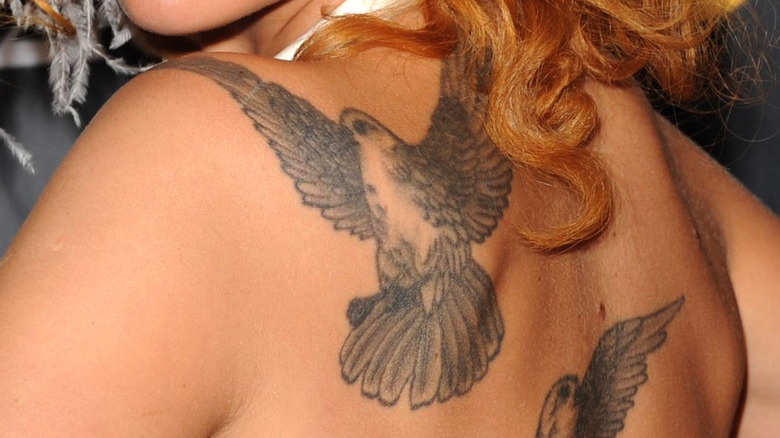What Does A Dove Tattoo Symbolize?
There are a lot of beautiful tattoos, but a dove tattoo has to be one of the best. Per Chronic Ink, a dove tattoo is becoming increasingly popular. So popular, in fact, both men and women request for the design to be on their bodies. As for the reason why? It has to do with the symbolism.
The website reported a dove tattoo represents beauty, love, peace, and most importantly, positive energy. No matter if the dove art is simple — a small design of a flying dove — or something more intricate, like a dove and a flower wrapped together; the symbolism remains the same.
Aside from representing peace and serenity, a dove also has different significance, depending on religion and mythology. For example, per Tatring, in Greek mythology, a dove represents the goddess of love, Aphrodite, who rode in a chariot filled with flying doves. In Aztec mythology, a dove represents something similar; it symbolizes the goddess of love, Xochiquetzal, who is also believed to be the mother of all humanity, says Tatring.
A dove has different meanings, depending on religion or mythology
Aside from Greek and Aztec mythology, doves also hold significance in Native cultures. For example, according to Tatring, in some cultures, Native elders believe that the deceased transform into doves once they enter the afterlife.
However, the story is different from other religions like Christianity. Per Chronic Ink, a dove symbolizes the connection of peace and harmony. Additionally, it also represents the Holy Spirit, present in the form of a dove at the baptism of Jesus in all four Gospel accounts.
No matter the religion or the mythology, a dove still holds meaning: peace, serenity, and love. It's no surprise that the design is popular with couples, singles, or honestly, just about anybody. But even though doves have different symbolic meanings, depending on the context of religion and or history, your tattoo can mean anything you want it to be. Your tattoo symbolizes whatever you want it to, no matter if religion or mythology say otherwise.

